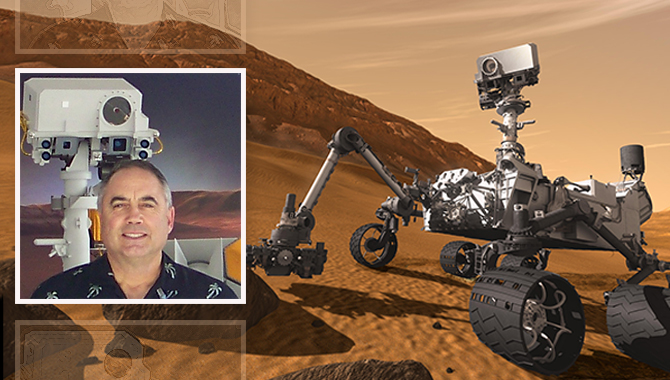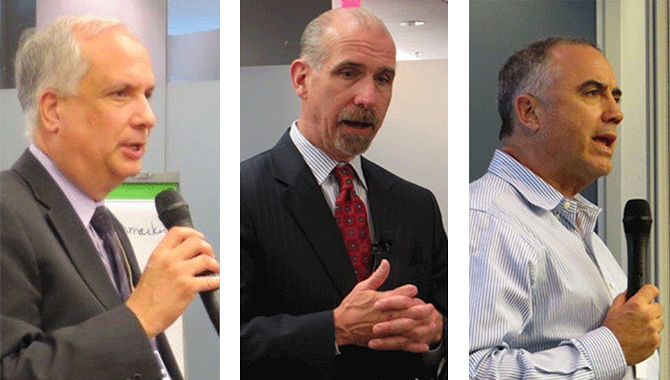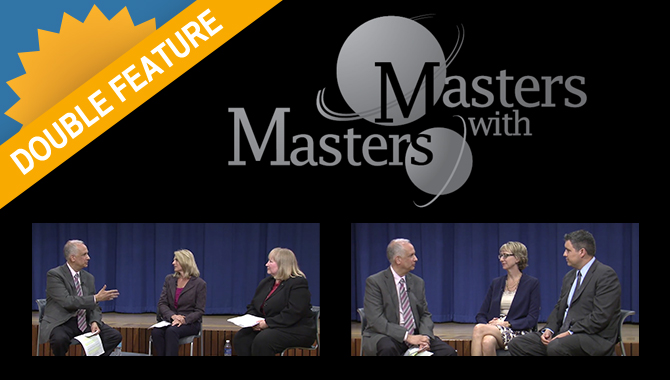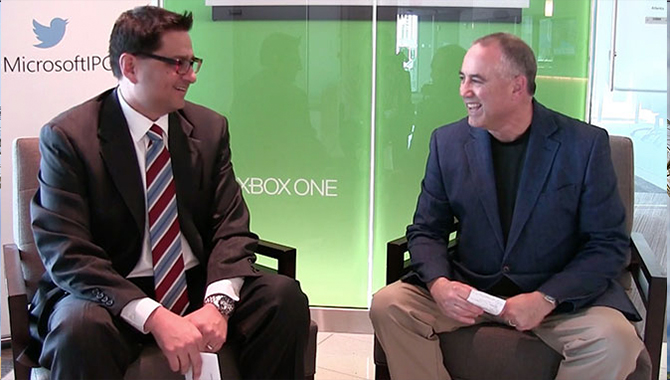
David Oberhettinger discusses knowledge management at the Jet Propulsion Laboratory.
Disclaimer: This material is being kept online for historical purposes. Though accurate at the time of publication, it is no longer being updated. The page may contain outdated information or broken links. Current Knowledge Community Corner articles are available here.
David Oberhettinger serves as the Chief Knowledge Officer (CKO) at the NASA/Caltech Jet Propulsion Laboratory (JPL) in addition to managing the JPL Engineering Standards Office and the JPL Spaceflight Engineering Research Program, and chairing the JPL Lessons Learned Committee. He has been involved in knowledge management and lessons learned capture at JPL for 25 years.
ASK News: What are some of the most prominent knowledge challenges in your organization?
David Oberhettinger: Our primary challenge is to make good use of what JPL knows—to retain and share the wealth of technical knowledge that is accumulated by the institution, by projects, and by individuals over the course of our pioneering spaceflight projects. JPL is not unique in facing a serious knowledge retention challenge with the attrition of our most experienced personnel. However, replacing this intellectual capital is particularly difficult for JPL because nowhere outside JPL and its contractors does there exist an equivalent hub of expertise in deep space system development and operation. Other JPL knowledge may be lost, not due to personnel turnover, but due to project turnover when no concerted effort is made to retain and share knowledge critical to the success of other projects. Personnel in our line organization, the main repository of subject matter expertise, may have over the years become less diligent in documenting the rationale for technical decisions.
ASK News: Are there any successful knowledge efforts in your organization that you’d like to highlight?
Oberhettinger: JPL is planning a four-step knowledge management strategy to make better use of what JPL knows:
- Determine what JPL technical knowledge is most critical to retain and share.
- Identify the gaps in retention/transfer of this critical knowledge.
- Implement measures to close the gaps.
- Establish a continuous improvement process for knowledge management.
Initially, we have identified Entry, Descent, and Landing (EDL) as one critical topic, and Elmain Martinez has established a NASA EDL Repository (EDL-R) to capture this knowledge. We are planning to use advanced search technology demonstrated on this project to establish a Technology & Engineering Knowledge Repository (TEK-R) for key project knowledge that has not been archived or is not easily retrievable from project libraries. JPL is working with Microsoft Corp. to expand the capabilities of their Maven® tool to permit easy searches of videos. We are holding Lunch & Learn sessions for Project System Engineers to share solutions proven effective on their JPL projects, and we are planning Pause & Learn sessions for the monthly meetings of JPL project managers. I’d also like to point out that JPL has a very mature lessons learned process: the JPL Lessons Learned Committee has met weekly since 1984 to vet lesson learned candidates and to identify issues arising from projects that may require Lab-wide corrective action.
ASK News: Are there knowledge management efforts — either within NASA or other organizations — that you find particularly remarkable or innovative?
Oberhettinger: NASA HQ is taking rapid strides to organize an agency-wide knowledge management (KM) program that will assist the field centers to exploit their substantial strengths in knowledge sharing. For many years, Goddard Space Flight Center has led the agency in using the Pause & Learn and case study approach to KM. Johnson Space Center is devoting substantial resources to capturing human exploration knowledge through storytelling, taxonomy definition, and measures to retain retiree knowledge. David Lengyel, the NASA Human Exploration Operations Mission Directorate Risk & Knowledge Management Officer, is a major KM innovator, and he publishes a newsletter – the Risk & Knowledge Management Quarterly Update – that is very informative.
ASK News: What’s the biggest misunderstanding that people have about knowledge?
Oberhettinger: The science data gained from a spaceflight project is usually the sole or principal product, and the scientific knowledge gained from these data is handled accordingly. However, there appears to be less recognition that the engineering knowledge gained over the project life cycle has a residual value after the project is concluded. If the project budget does not provide adequate resources for archiving project-specific knowledge for easy retrieval, then it may impact our ability to reuse technology developed at great expense. (Even during the course of a project, project managers are reluctant to allow other projects access to information because they view such inquiries to be distracting.) It creates a situation where JPL doesn’t know what JPL knows! For example, it was unfortunate that JPL design of the throttled engine needed for the Descent Stage on Mars Science Laboratory necessitated making inquiries to Viking project staff who had long since retired. Surely the higher salary granted by a project manager to an experienced engineering specialist, compared to that paid to a specialist with minimal experience, reflects the value of the knowledge gained through experience on previous projects. “How-to” knowledge has great value, and NASA center knowledge processes should place a high priority on capturing and sharing it.









